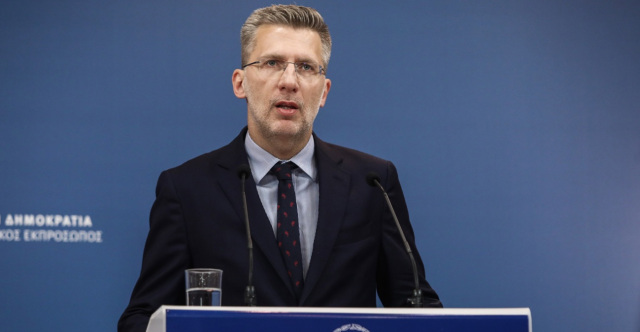During the “Demographic 2025” conference, Minister of State Akis Skertsos outlined ten policies aimed at addressing the demographic challenges facing our country. Representing the Prime Minister, he provided insights supported by international data and a philosophical perspective on the issue.
He began by pointing out a recurring paradox in developed nations: the “demographic paradox of prosperity.” He explained that as income, economic stability, and life expectancy rise, particularly in the Western world, people’s willingness or ability to have children declines. This trend is not unique to Greece but is a global phenomenon, especially pronounced in developed countries. “The negative indicators should prompt dialogue and strategic planning among us all,” he emphasized.
Focusing on Greece, he highlighted that for the first time, the country has established a dedicated ministerial structure to address demographic issues and family support, along with a comprehensive national plan approved in 2024. This plan allocates twenty billion euros—approximately two billion annually—to support families over the next decade.
At this point, Akis Skertsos made an important observation: “Over the past decade, the five richest countries—Luxembourg, Switzerland, Ireland, Norway, and Singapore—have all experienced a consistent decline in birth rates.”
He then raised critical questions regarding modern life: “Does the comfort we enjoy generate unseen stress? Is the insecurity we feel more than just economic? Factors like a lack of meaning, disconnection from community, fear of climate change, and individualism contribute to viewing parenthood as an additional burden rather than a hopeful prospect.”
“Therefore, Greece is part of a broader phenomenon. We must respond not just with economic policies but also by fostering a new cultural narrative that values life, care, and connection. As Karl Popper said, ‘Optimism is a moral duty.’ Hope is a stance in a complex world. Our primary responsibility regarding demographics is to create a world where hope flourishes, so young people feel they’re growing up to build, not just survive,” the Minister added.
He concluded, “If the demographic challenge represents the visible tip of the iceberg, its deeper roots lie in our internal disconnect from the idea of ‘enough.’ We tend to strive for ‘more’ rather than ‘better’ and ‘sufficient.’” He posed the question: “Why did previous generations, who had fewer comforts and resources, have more children?” His answer suggested they were less consumed by the pursuit of material wealth, implying that moderation—not numerical targets—holds the key to addressing this issue.
In closing, A. Skertsos stated, “While policies that support families are essential, we need a cultural shift that elevates values like parenthood, positive parenting, creativity, care, and ecological balance as meaningful contributions to life. It’s not solely about economic capacity or government support; it’s inherently about our worldview and priorities. We must make the conversation about the miracle of life and parenthood a common narrative.”
On a personal note, he shared, “I regret that my wife and I opted for only one child at a later age. In our quest for skills and career accomplishments, we delayed having our son—who ultimately brought us greater happiness than any achievement. This is a truth we, as parents, must express.”
Moreover, he recognized that “most people don’t reject the idea of starting a family due to financial constraints, but because they feel pressed for time, lacking community, purpose, or support. They see no encouraging structures that help them fulfill their dreams and needs.” He outlined actions the government is undertaking to address these concerns:
- A national strategy addressing the housing crisis, with over 40 measures totaling 7 billion euros to support housing supply and tenant income. One and a half million tenants will receive rent refunds.
- Special tax incentives to encourage the return of Greeks who left during the crisis.
- Employment policies promoting work-life balance and equitable caregiving responsibilities, including special leave and maternity benefits totaling over 10,000 euros for the initial nine months.
- A focus on public health and long-term care management, aimed at enhancing quality of life through free diagnostic programs.
- New policies to protect vulnerable populations, such as strategies against child abuse and digital addiction, along with an expanded network for tackling domestic violence, equipping families with resources to protect their children.
- Prioritizing youth, women, individuals with disabilities, and retirees in the labor market to meet increasing demands, particularly in health care as the population ages.
- Implementing controlled migration policies to ensure Greece can select migrants based on skills and needs, while strengthening border security and fostering legal migration agreements.
- Environmental policies that promote sustainability, including development initiatives worth over 60 billion euros, addressing regional cohesion beyond Athens.
- Addressing issues within the public sector to better serve citizens, focusing on competence through well-structured evaluations.
- Ensuring a continuation of fiscally responsible economic policies that generate stable surpluses and attract investments, aiming to avoid another financial crisis like that of the last decade.
The Minister of State concluded that the solution is multifaceted, much like the problem itself. It extends beyond mere numbers or incentives. It requires us to reflect on how we live and to collaborate—optimistically—toward these goals.
Ask Me Anything
Explore Related Questions

















